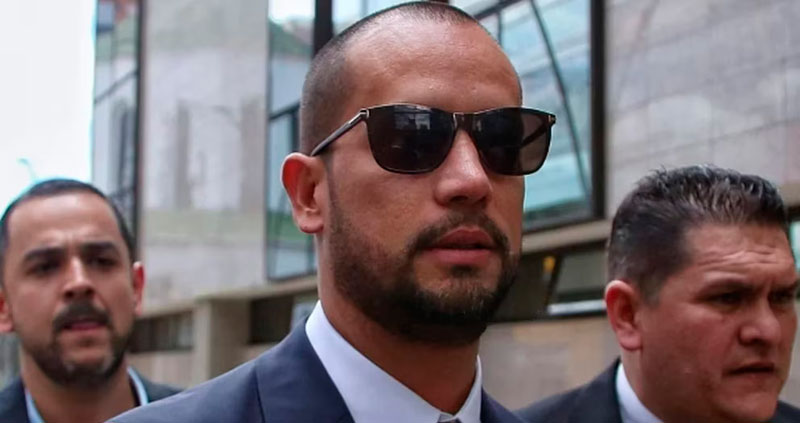The presentation of the magistrate Diana Marina Vélez, in which she asked to revoke the disciplinary sanction of the lawyer Diego Cadena for bribing witnesses in the case against former president Álvaro Uribe Vélez, was denied by the National Commission for Judicial Discipline.
With a vote of five to one, the arguments of the magistrate requesting Cadena’s acquittal were dismissed, based on the fact that the witness Carlos Enrique Vélez changed his testimony several times and has been accused of a mythomaniac.
Judge Vélez sought to revoke the disciplinary sanction imposed on Cadena and the lawyer Juan José Salazar Cruz, from the Valle del Cauca Sectional Commission. The lawyers were suspended from their professional practice, for 34 months, in the case of Cadena, and for 27 months, in the case of Salazar. Both are accused of having delivered 200 million pesos to Carlos Enrique Vélez so that he would make false statements and affect Senator Iván Cepeda.
The National Commission for Judicial Discipline, in a decision dated January 25, 2023, specified that the lawyer intervened “in the fraudulent acts, in his capacity as lawyer, when he insistently went to La Picota prison in Bogotá, offering benefits to Monsalve Pineda in exchange for his retraction” in February and March 2018.
In that, it was also ensured that these maneuvers were carried out so that “the truth was not told” by the star witness in the case. He also recalled the moment when Cadena asked Monsalve to sign a letter in which he said that he was willing to clarify his version of Uribe and his ties to paramilitaries.
With the decision of the Ordinary Chamber of the commission, in the next session of the commission, the substitute paper that must be presented by the next magistrate in alphabetical order will be evaluated.
Sanction against Diego Cadena for offering bribes
On May 26, the Supreme Court of Justice denied a guardianship, filed by Cadena, with which he intended to annul the sanction against him, which disqualifies him from practicing for three years after bribing witnesses in the case that was being carried out against former President Uribe. . This sanction was imposed by the Sectional Commission for Judicial Discipline of Bogotá.
Judge Marjorie Zúñiga Romero of the Labor Cassation Chamber, rejected the guardianship, in which Cadena requested the protection of her fundamental rights to the presumption of innocence, good name, due process, privacy and access to the administration of justice. The lawyer also argued, in his guardianship, that part of the probative material used by the court to sanction him was altered, for which reason the penalty should be declared null for “admitting, incorporating and evaluating illegal evidence.”
Argument that Judge Zúñiga rejected, as she determined that the recordings, even if they were taken without the consent of Diego Cadena, are legal and constitutional evidence because it does not compromise the right to privacy of individuals.
It must be remembered that the Superior Court of Bogotá determined that these audios are completely legal and may be used in court, rejecting the claims of the Prosecutor’s Office and Cadena’s defense that they were declared illegal.
Judge Zúñiga also warned that with this guardianship “what the lawyer wants is a new judicial intervention, to obtain the position that is resolved in his favor and according to his interests and that he forgets that the fact of not coinciding with the criteria of the The judicial authority to whom the law assigned jurisdiction to resolve the controversy at no time invalidates its action, much less makes it susceptible to being modified by way of guardianship. with Infobae
